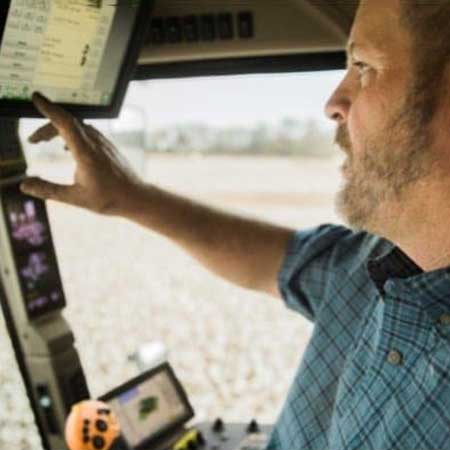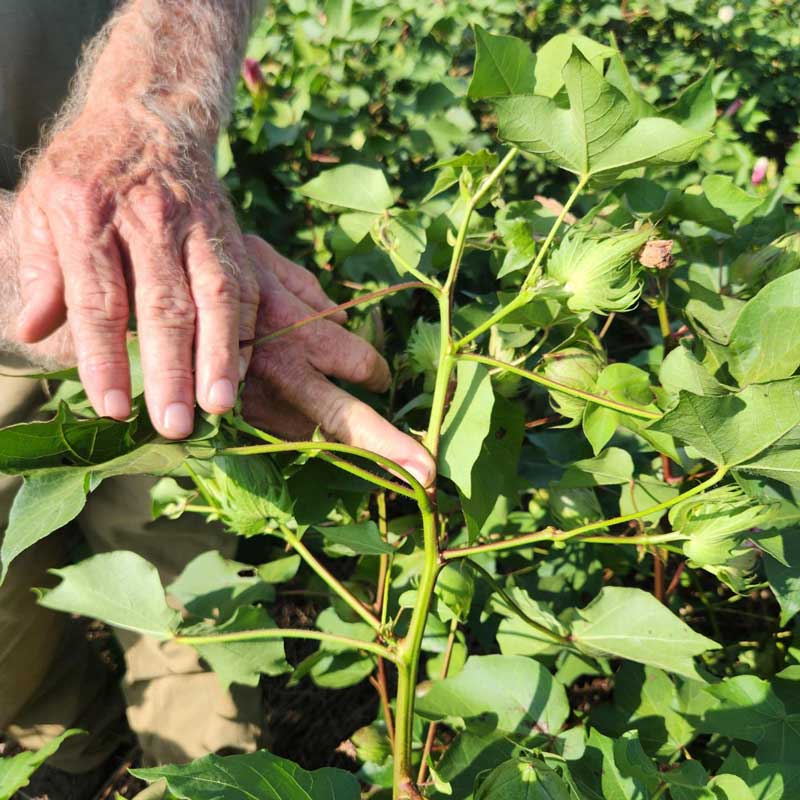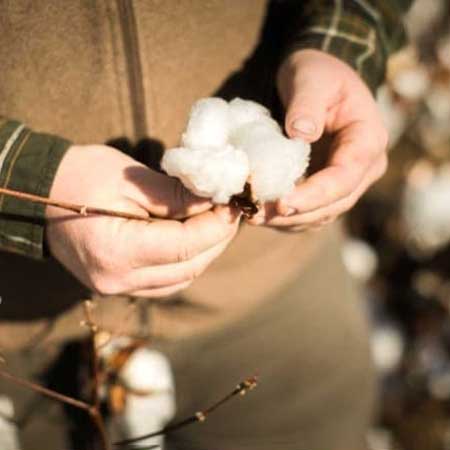Responsible Cotton Production
U.S. Cotton: A Commitment to People and the Environment
The well-being of people and the environment are at the heart of U.S. cotton production. As both a food and fiber crop, U.S. cotton is carefully regulated for safety and quality by multiple federal agencies, including the United States Department of Agriculture (USDA), Food and Drug Administration (FDA), Environmental Protection Agency (EPA), and Department of Labor (DOL).
The industry also adheres to strict federal regulations that protect workers including stringently prohibiting forced and child labor, safeguarding worker rights, including fair wages, safe housing, access to clean water, and essential safety equipment.
U.S. cotton farmers prioritize safe and healthy workplaces, employing smart farming methods, adhering to guidelines for safe crop protection practices, and providing thorough training. This commitment to responsible practices is integral to producing high-quality cotton and is reflected in our adherence to strict regulations, demonstrating our diligence.
Beyond regulatory compliance, many U.S. cotton growers proactively invest in their employees, recognizing them as essential partners in their operation. Examples include offering wages well above the minimum, providing paid time off, and creating opportunities for bonuses and overtime pay. Many growers also provide valuable benefits such as vehicles, cell phones, assistance with retirement savings, health insurance, and support for pursuing higher education.
Examples of U.S. Regulations
| Regulation Area | Governing Body | Key Provisions | Impact on Cotton Production |
|---|---|---|---|
| Minimum Wage & Overtime | Department of Labor (DOL) | Sets minimum wage standards; requires overtime pay for hours worked over 40 per week. | Guarantees fair compensation for cotton workers; promotes economic stability in agricultural communities. |
| Worker Safety | Occupational Safety and Health Administration (OSHA) | Mandates safe working conditions; requires PPE; provides training on hazard prevention; addresses access to clean water and emergency medical assistance. | Protects workers from workplace injuries and illnesses; ensures a safe and healthy working environment. |
| Pesticide Use | Environmental Protection Agency (EPA) | Regulates the registration, distribution, sale, and use of pesticides. | Ensures safe and responsible pesticide use in cotton production. |
| Food Safety | Food and Drug Administration (FDA) | Establishes standards for food safety; regulates the handling, processing, and labeling of food products. | Ensures the safety and quality of cotton as a food crop (e.g. cottonseed oil); protects consumers from potential health risks. |
| Environmental Protection | Environmental Protection Agency (EPA) | Regulates air and water quality; protects endangered species; promotes sustainable agriculture practices. | Minimizes the environmental impact of cotton production; protects natural resources and biodiversity. |
| Migrant Housing | DOL/OSHA | Sets standards for safe and sanitary housing for migrant workers; Ensures access to essential services. | Provides decent living conditions for migrant workers who are essential to cotton production. |
The U.S. Cotton Trust Protocol: Elevating Responsible Practices
Building on a strong foundation of existing U.S. regulations and commitments to worker well-being and environmental stewardship, the U.S. Cotton Trust Protocol provides an additional layer of verification for responsible cotton production. A key element of grower enrollment in the Trust Protocol is a signed commitment to continuous improvement across key sustainability metrics. With millions of acres already enrolled, the Trust Protocol demonstrates the U.S. cotton industry’s dedication to transparency and provides increased confidence in responsibly sourced U.S. cotton.
Trust Protocol Criteria: Upholding Ethical Labor Practices



- Workers are treated fairly
- Wages equal to or higher than required by law are provided
- Working hours comply with national and state law
- Children are not exploited in any form
- There is no forced, compulsory, bonded, or trafficked labor
- The workplace is kept safe by minimizing hazards
- Discrimination of all forms is forbidden
- Equal wages are paid to workers who perform the same job, regardless of gender, race, or ethnicity
- Safe and hygienic sanitation is accessible
- Potable drinking water and wash water is provided
- Workers have freedom of association
- Abuse or harassment of any kind is not tolerated
The Trust Protocol also utilizes independent second- and third-party verification to support these findings. To read more about the verification process, click here.
Transparency
Gain complete visibility into your supply chain, from farm to finished product.
Streamlined Inventory
Track cotton movements throughout the supply chain for precise inventory management.
Verification
Confidently verify the origin and amount of U.S. Cotton or Protocol Cotton in your products, assuring authenticity and compliance.
Visit our 2024 Annual Report to learn more about our important work to date.
More About What We Offer
Environmental Data Tracking
Access verified data on key sustainability metrics, empowering data-driven decisions and showcasing your environmental commitment. Learn about the practices Protocol growers implement to continuously improve on the farm.
Supply Chain Traceability
Trace your cotton's journey to the finished product with our traceability system. Gain unparalleled visibility into your supply chain and build consumer trust.
